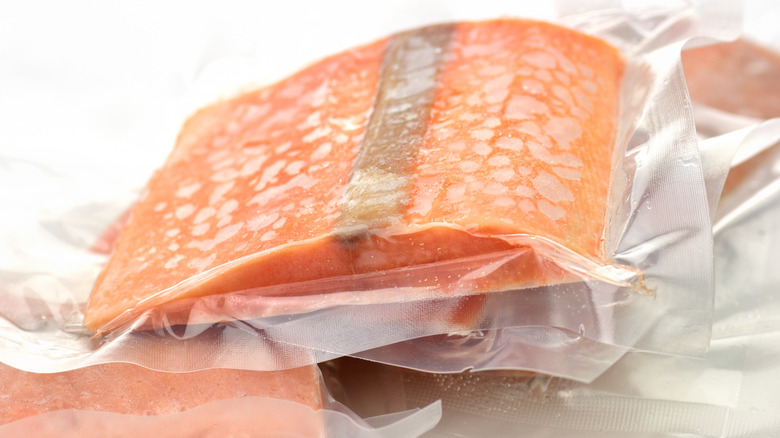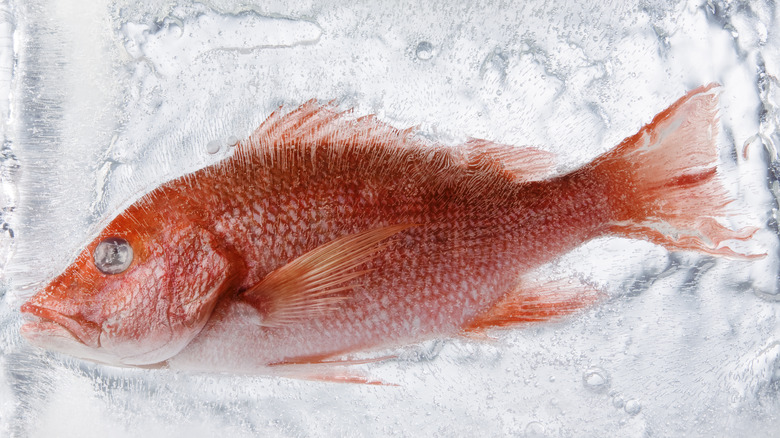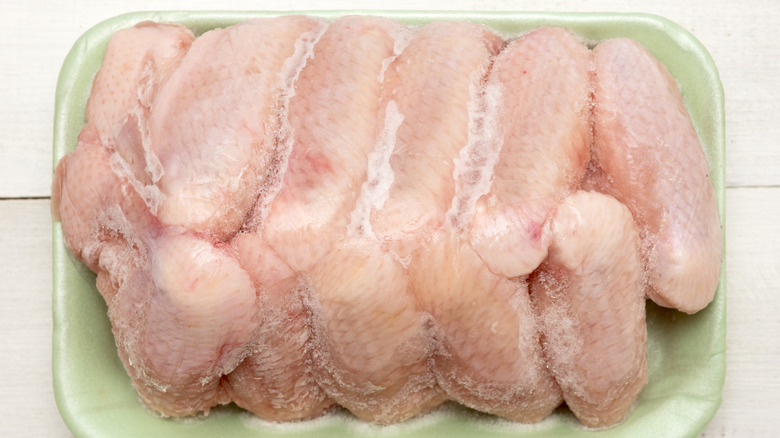Why It's Not The Best Idea To Try And Sear Frozen Fish
Most Americans have some proteins sitting in their freezer; it's a great way to keep food fresh for longer and have it on hand when needed. The only problem is remembering hours ahead of time to defrost before cooking; forget, and you might think you're out of luck. While this may be true for a lot of proteins, it isn't for frozen fish, which can be cooked without thawing. It may take longer than fully-thawed cooking, of course, but it will indeed work.
Certain fish are more ideal for this than others, of course; leaner fish (like cod or tilapia) are far better than fatty fish (like salmon or tuna), because they retain less moisture during the freezing process. But regardless of the variety of fish, never sear it from frozen. This is because the moisture content will work against your best efforts, turning it into a soggy, unappetizing mess.
Searing frozen fish doesn't work because of water content
In general, most fish don't hold up to a hard sear as well as something like scallops or steak; many varieties are simply too delicate to make it work. Something as meaty as swordfish can handle it, but flaky white fish are out, and even something like salmon can be tricky to sear. While it's possible to make everything work if your fish is fresh (or at least thawed), doing so from frozen is a bad idea.
The reason is that when frozen food thaws quickly, it releases a lot of moisture. What ends up happening is that instead of getting a nice brown sear, the fish essentially steams in its own unfrozen water. This is the same reason it's a good idea to pat dry any protein to which you're attempting to apply a hard sear; whether it's pork chops, steaks, scallops, or whatever else, they can all use a good pat-down.
There are other ways to get around the defrosting issue
While you can cook fish from frozen, there really isn't much of a need to do so. Forgot to defrost it ahead of time? Seal it in an airtight package, fill a mixing bowl with lukewarm water, and drop the fish in there. Give it fifteen minutes, and it will be thawed and good to go. This works for other proteins, too, but it takes a lot longer with beef, chicken, or pork (although bacon thaws even faster than fish does). Regardless, it's a great way to thaw things quickly without compromising their structural integrity.
Like any other food, it's important to know the right way to cook fish, particularly if preparing it without first thawing it. Baking, broiling, or poaching is ideal for cooking from frozen, and can even potentially unlock new culinary experiences. Just be sure to avoid the searing.


